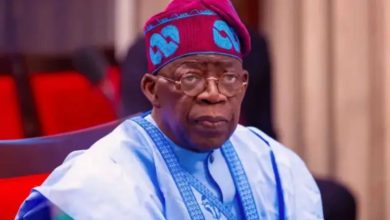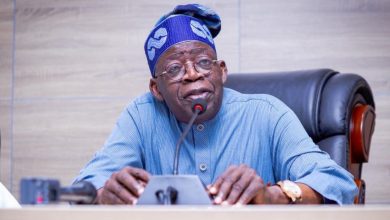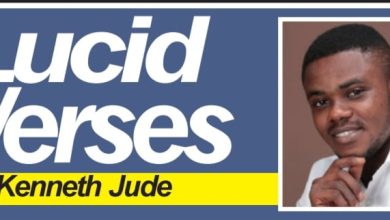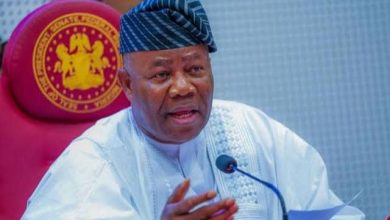
The explosive power of words and velocity with which they can fly may once again have been clearly demonstrated by the controversy that is still trailing or lingering over the post by a twitter user simply identified as Terry that the gold deposits in Zamfara State belong “exclusively” to the state.
As was reported on his twitter handle @terry2020, Terry was quoted to have tweeted: “Niger Delta Oil Belongs to Nigeria. Zamfara Gold Belongs to Zamfara”. From investigations, Terry was reacting to an earlier report in the Daily Trust Newspaper that Zamfara State governor, Bello Metawalle, said the state would supply gold worth N5 billion to the Central Bank of Nigeria (CBN).
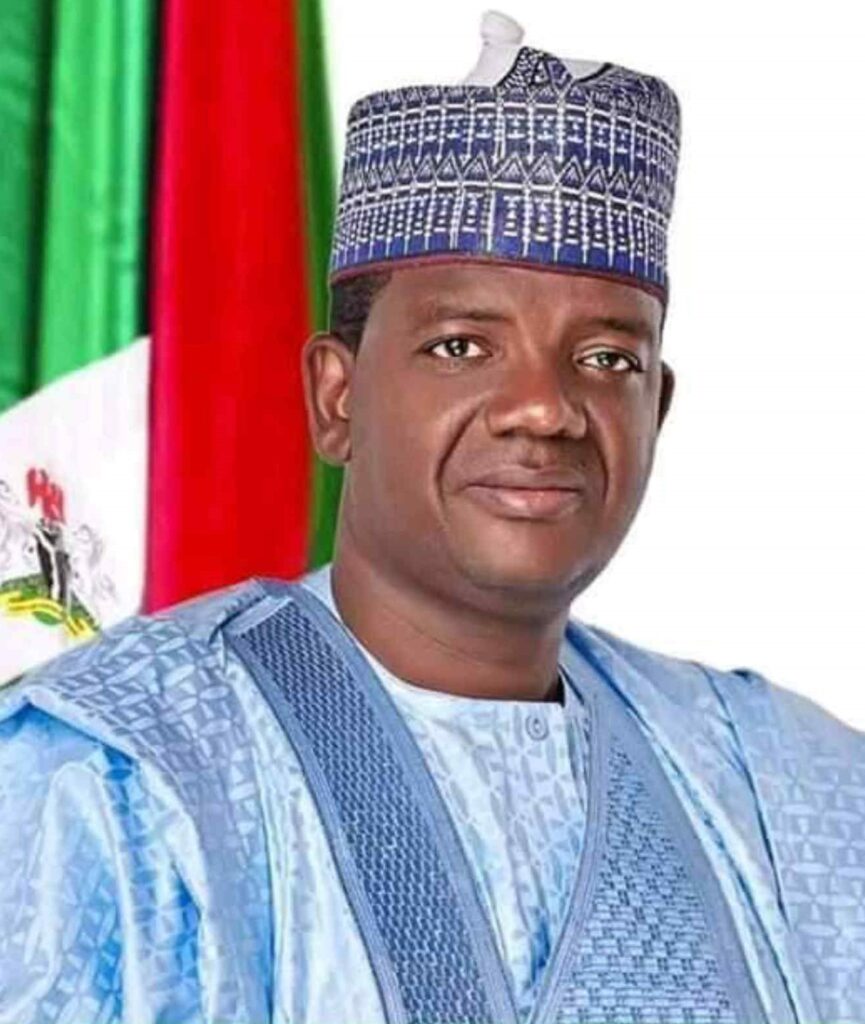
Quoted in the Daily Trust reports, Gov. Metawalle is reported to have disclosed that Zamfara Government had partnered some investors to mine gold in the state, coordinate production activities for better yield, displace illegal miners and organize genuine miners into cooperative groups under the Presidential Artisanal Gold Mining Development Initiative (PAGMI).
Read Also: Niger Delta Needs Ownership Of Resources
“For a start, we have purchased 31 kilometres of gold, wholly mined and refined by our artisanal miners. We will subsequently continue to buy gold from our local miners so as to gradually reserve it. The precious metal would be deposited in a bank”, the Zamfara governor stated.
The governor’s disclosure, which could have been misunderstood, instantly attracted disparate opinions and hurried conclusions as well as ignited anger in some quarters. In the desperate anger, it was impossible in the circumstances for some to read the governor’s words line by line, to have understood its content and context of expression. Part of the misunderstanding, perhaps, was Terry’s euphemism raising question on why the oil in the Niger Delta belongs to the Federal Government while Zamfara rather sells its gold to the same government.

In the same speed, a socio-political organization, The Economic Survival of Urhobo Nation (CATESUN), immediately issued a statement demanding that henceforth, the oil in the Niger Delta should be controlled by member states in response to Zamfara State selling gold to the Federal Government. In the statement which was signed by the national president of the body, Olorogun Ese Kakor, they expressed disappointment with the leadership of the National Assembly and the Presidency for their playing ostrich to the Zamfara-CBN gold deal.
Describing the situation as ugly and clear case of injustice, part of the statement reads: “This injustice must stop because the 1999 Constitution put solid minerals in the Exclusive Legislative List and not only oil and gas. So why are the National Assembly and Presidency feigning ignorance? These negative developments and inequalities in the handling of the explorations and exploitations of natural resources in Nigeria trigger unrest in Urhobo and Niger Delta at large”.
The matter did not go well even at the National Assembly. On October 14, 2020, while making inputs to a debate on the 2021 Appropriation Bill, deputy president of the Senate, Hon. Ovie Omo-Agege, raised questions around the gold deal and stated that it was a clear breach of the constitution.
Hon. Agege who is also the chairman, House Committee on Constitution Review, maintained that allowing Zamfara to sell gold to the Federal Government under any guise was a big slap to the Niger Delta where bulk of the country’s revenue comes from. The senator therefore argued that the gold in Zamfara, if it must be sold, should be in the interest of all Nigerians and not just a state.
“Recently, Governor Metawalle presented a gold bar for sale worth about N5b to the CBN. Our people are beginning to wonder who owns the gold being sold to the CBN. They don’t sell the oil in the Niger Delta states and I am wondering why a governor should sell the gold bar to CBN”. The infuriated senator said.
Also, Ijaw youths under the aegis of Ijaw Youths Council (IYC) have vented their disapproval on the proposal to sell gold by the Zamfara State Government to the Central Bank. Speaking through its spokesperson in the wake of the information, Ebilade Efereke in a statement titled: “Zamfara Gold: Nigeria Is Currently Sliding Into Disintegration – IYC Urges Federal Government To Restructure The Country Urgently To Avoid Anarchy”, the organization stated that it would be a case of deliberate and condonable injustice if the National Assembly and the Presidency okayed the controversial transaction.
WHAT THE LAW SAYS
The Nigeria Minerals and Mining Act, 2007, places the ownership of all oil minerals, including gold, in the exclusive list that belongs to the Federal Government. “All lands in which minerals have been found in commercial quantities shall from the commencement of the Act be acquired by the Federal Government in accordance with the Land Use Act. Property in mineral resources shall pass from the government to the person by whom the mineral resources are lawfully owned, upon their recovery in accordance with provisions of the Act”.
For example, mineral resources, which include both liquid and solid, wherever they are located in commercial quantity across states in the federation, rightly belong to the Federal Government. If, for instance, it has to do with gold like in the case of Zamfara, a licence must be obtained from the Federal Government through the Office of the Nigeria Mining Cadastre under the Ministry of Mines and Steel Development.
BUT IS METAWALLE REALLY SELLING THE ZAMFARA GOLD?
There have been arguments that the governor was either quoted out of context or grossly misunderstood. The governor himself had contended that the state government was not claiming the gold; but that it was able to raise some money to invest independently on it as part of business, which could involve any interested buyer, including the government. Some commentators have said that the governor should be commended rather than being vilified for his enterprising initiative that would generate IGR to the state.
Giving further insights on the burning issue, the special assistant to the president on digital and new media, Tolu Ogunlesi, said that Zamfara gold, like resources in other states across the country, is owned by the Federal Government although it may be held in trust by any state governor. In this regard, anyone who wants to mine it has to apply for a licence, mine and pay taxes, royalties, etc. Hence, anybody wherever he comes from who has the wherewithal can set up a mining company and apply to mine Zamfara gold.
HOW IT SHOULD CONCERN NIGER DELTA GOVERNORS.
Content analysis of Gov. Metawalle’s disclosure however revealed more than the shades of expert and public opinion. If Metawalle could raise or serve as much as N5billion to reinvest on behalf of the state in the hope of generating income, it becomes a matter of personal business acumen and a big challenge to Niger Delta states governors who, unarguably, have greater and better opportunities with their natural resources.
Many have accused Niger Delta governors for their lack of vision and capacity for the collective and peculiar growth and development of the zone. For the past 60 or so years, leaders of the zone have depended solely on the Federal Government and the 13 per cent derivation revenue allocation from the Federation Account. There is no socio-economic initiative that has ever been undertaken either by a single or all the states in the area combined towards developing the Niger Delta, creating employment, and generating extra revenue to the states.
Everything has ever been done by the Federal Government. A report by an online source shows the following index of Niger Delta states’ dependence on the Federal Government: Akwa Ibom, 83 per cent; Bayelsa, 92 per cent; Cross River, 66 per cent; Delta, 77 per cent; Edo, 67 per cent; and Rivers, 54 per cent. Why this huge ratio of dependence in the richest zone of the country and the world?
When “BRACED”, an acronym for Bayelsa, Rivers, Akwa Ibom, Cross River, Edo and Delta, was launched 10 years ago as a socio-economic vehicle for the development of the Niger Delta, people thought it was an idea whose time had come and that the initiators would pull it beyond the dense borders of dreams. But that has not happened. Whereas the Niger Delta alone is host to three of the four moribund refineries in the country, two in Port Harcourt, one in Warri, analysts are of the opinion that the area ought to have had its own refinery, conventional or modular, by now. This would not only have reduced the pains associated with transportation of petroleum resources for long distances, but also would have generated composite employments through diversification.
The Zamfara State gold sale proposal, beyond the controversies, is really an ironic exposition. But Nigerians still find it hard to believe there was nothing more than what meets the eyes. What some are worried about is whether deals of that nature may not already have been going on without public notice or what would have happened had the Daily Trust reportage not come to light.

